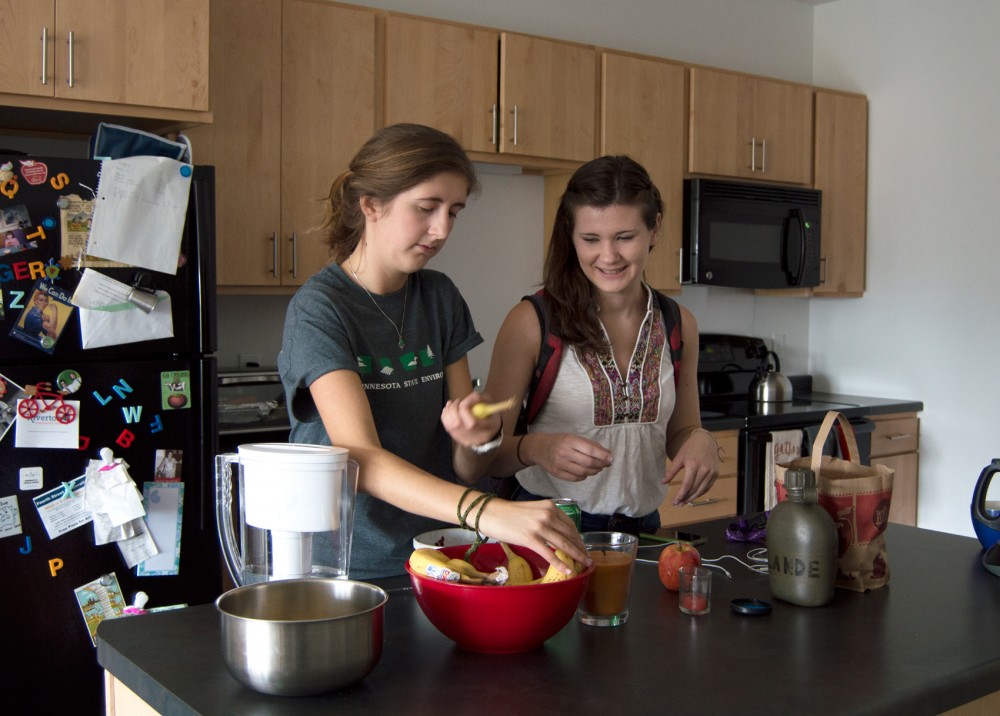As luxury student apartments featuring amenities like hot tubs, tanning beds and movie theaters pop up across Dinkytown, one new complex is taking on a different approach.
Open to students this fall, the Fourth Street Housing Cooperative, owned by Riverton Community Housing, offers cheaper rent in Dinkytown than its luxury counterparts because of its nonprofit status.
Where landlords would normally make management decisions, the apartment takes votes from a panel of residents to run the day-to-day business inside the complex, a method some University of Minnesota officials think should be practiced more frequently on and near campus.
Initially, some students signed onto leases at the co-op without understanding its structure, Kit Fordham, cooperative services manager for Riverton Community Housing said.
To help residents get a better understanding of how the apartment works, Fordham has been hosting meetings to explain the process.
The co-op is managed by a board of up to 16 residents, who will be elected by fellow residents by Sept. 26, Fordham said.
Marketing sophomore and Fourth Street Co-op resident Sydney Provinzino said she knew little about co-ops and how her living space would be managed before she attended one of Fordham’s information sessions.
Though she said a board position would be too much responsibility for her, she doesn’t have a problem with her peers making decisions for the apartment.
“I feel like since it’s mostly college students, I think their wants and needs are pretty congruent with what my wants and needs are,” Provinzino said.
The student board will vote on a number of topics, including their yearly budget and plans for future projects, like exercise rooms, Fordham said.
He also said the board’s proposals, along with routine maintenance, are handled by Riverton Community Housing’s central offices.
University Regent Thomas Devine said he has been frustrated with the University’s lack of support for alternative housing and was excited to see the co-op open this fall.
Devine said the University insured the financing for Riverton’s first ever cooperative housing apartment, the Chateau Student Housing Co-op, back in the 1960s, but it hasn’t financed any co-op apartments since.
But now the University is facing a student housing shortage and has 5,700 new freshmen this year — one of the largest freshmen classes in University history — Devine said.
He said it’s important to provide more affordable housing to students off campus.
Devine said the Board of Regents will discuss housing options at its Facilities, Planning and Operations Committee meeting next month and continue its conversation over
whether Sanford and Pioneer Residence Halls should be replaced.
“There is a strong interest on the part of the Board to pay attention to the housing costs … and the quality of housing,” he said. “So, that’s on the table now in a way that it hasn’t been before.”
Devine said co-op housing is more valuable to students because it can offer housing at a lower rate than its competitors.
Riverton aims to offer rent for 10 percent under the market rate with a “no frills” method, Fordham said.
“I’m sure if you looked another 3 miles … out you’d find better rent, but for what Dinkytown runs typically, the co-op is pretty reasonable,” Provinzino said.








